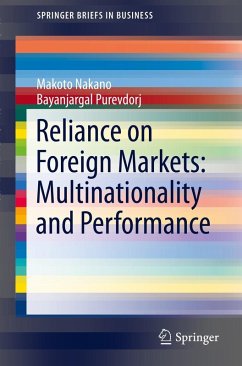
Financial Management Practices (eBook, PDF)
An Empirical Study of Indian Corporates
Versandkostenfrei!
Sofort per Download lieferbar
72,95 €
inkl. MwSt.
Weitere Ausgaben:

PAYBACK Punkte
36 °P sammeln!
Financial management practices are likely to have a marked effect on the financial performance of a corporate enterprise. Therefore, sound financial decisions/practices can contribute towards meeting the desired objective of having profitable operations. This subject assumes paramount significance in view of the present dynamic and turbulent business environment, which has produced more intense competition and smaller profit margins across the world. In this context, the financial management practices of the corporates in India, a country with a vast potential for economic growth, can offer va...
Financial management practices are likely to have a marked effect on the financial performance of a corporate enterprise. Therefore, sound financial decisions/practices can contribute towards meeting the desired objective of having profitable operations. This subject assumes paramount significance in view of the present dynamic and turbulent business environment, which has produced more intense competition and smaller profit margins across the world. In this context, the financial management practices of the corporates in India, a country with a vast potential for economic growth, can offer valuable insights. The present study explores whether there has been a major change in the financial performance (measured in terms of profitability) and financial policies/decisions of the sample companies over a fixed period (2000-2001 to 2010-2011), with a special focus on pre and post-recession analysis. It delves deeper into current research areas such as zero working capital, real options in capital budgeting, pecking order in capital structures, and clause 49 as reflected in the financial management decisions of sample companies, and provides a broader perspective by identifying trends (if any) in certain aspects of financial decision-making over the past two decades. A comprehensive study, covering all the major aspects of financial management practices, also contains an inter-sectoral study (among the sample companies) and develops an index of professionalism in financial management based on the practices of the sample companies. The book is primarily targeted at teachers/students of finance, management, commerce, accounting and related professional disciplines/fields. Practitioners/professionals will find it an invaluable text that helps guide them to better decision-making.
Dieser Download kann aus rechtlichen Gründen nur mit Rechnungsadresse in A, B, BG, CY, CZ, D, DK, EW, E, FIN, F, GR, HR, H, IRL, I, LT, L, LR, M, NL, PL, P, R, S, SLO, SK ausgeliefert werden.













